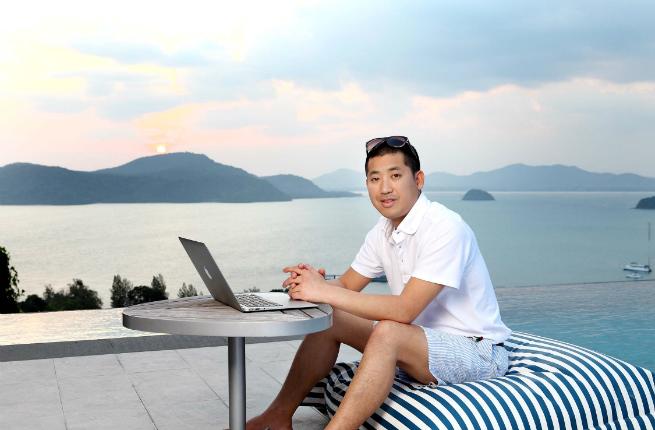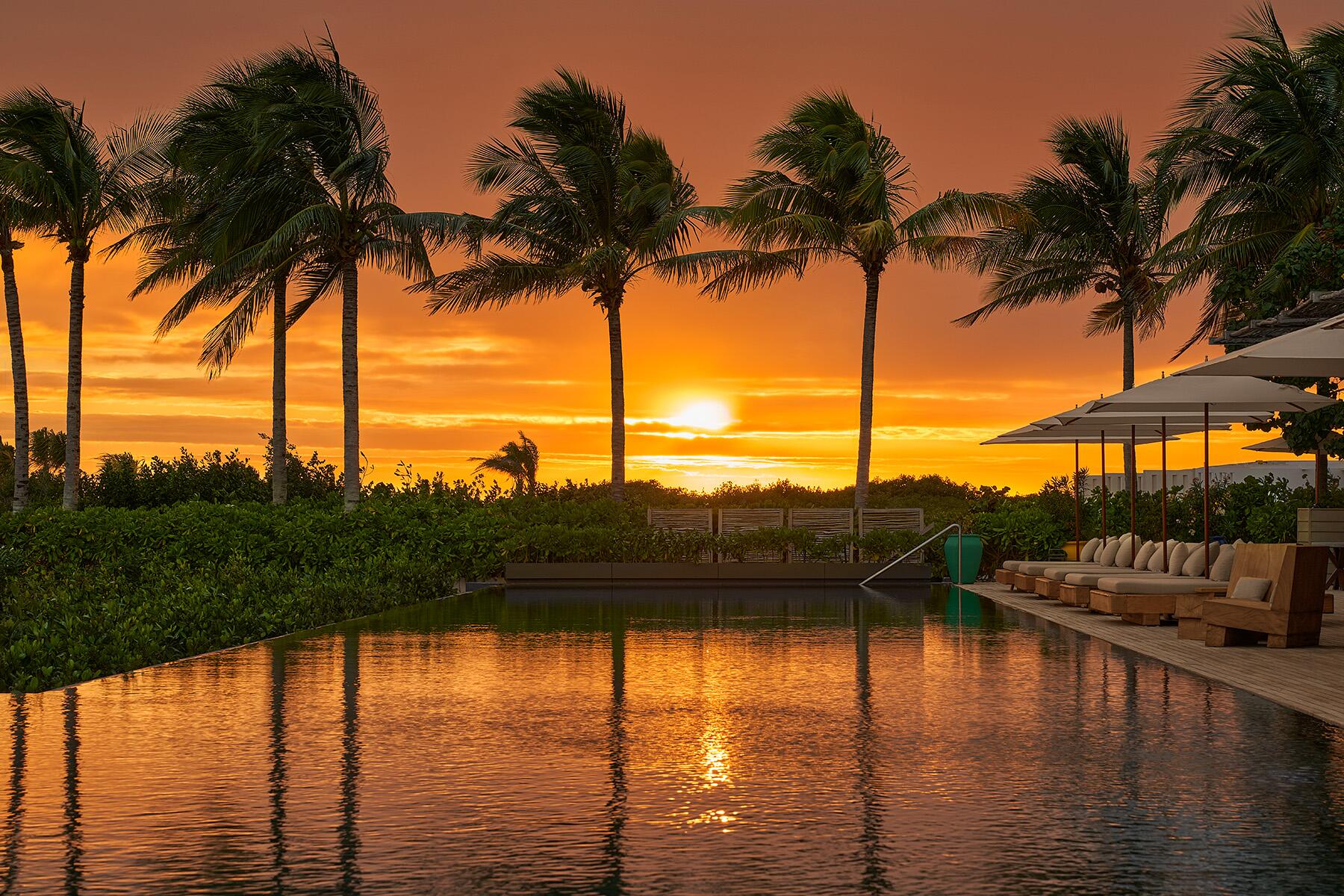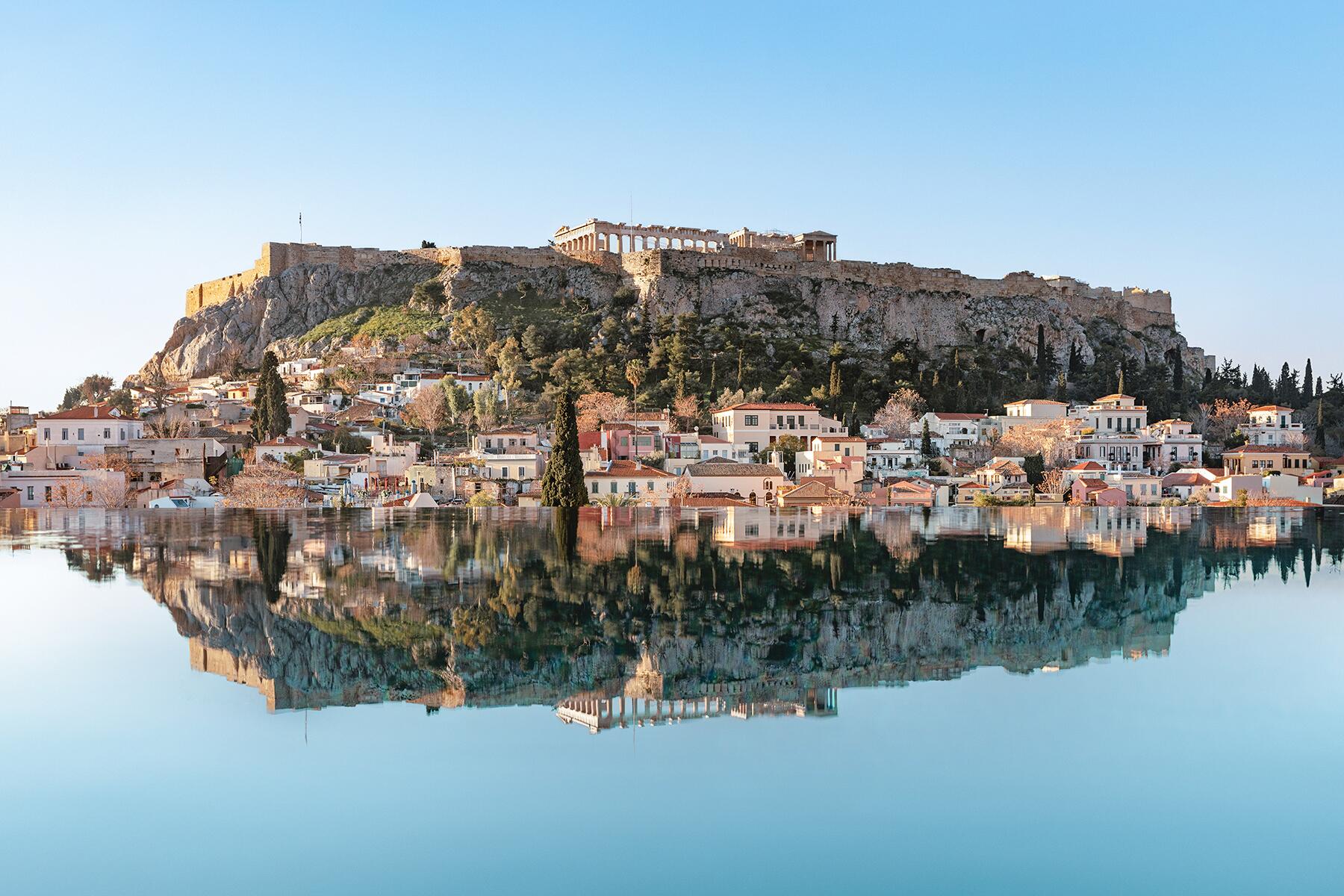
Since 2005, Vorasit Issara, known as Wan, has been the managing director of the family-owned and multi-award-winning Sri panwa, a luxury resort on the southeastern tip of Phuket. At only 32, and as one of the few Thai hoteliers in a region dominated by international brands, Wan brings a distinctive flair and sense of fun (sanook in Thai) to his managerial style. We caught up with Wan to talk about the little things that make a hotel great and why Phuket remains one of the world’s most popular and romantic destinations.
You established Sri panwa in 2005 at the age of just 23. Were you trying to create a distinctively Thai vision of luxury?
Sri panwa was created under the idea of Thai luxury, but with a twist, as many luxury brands embrace formal aspects. Sri panwa is fun, luxurious, and boutique. The atmosphere is a kind of beach boys/beach girls feel with an emphasis on good music. These elements allow Sri panwa to be more friendly and more approachable than other traditional luxury hospitality brands seen in Thailand.
Phuket has developed rapidly over the last decade to become one of Thailand’s most popular islands. What makes it such an unforgettable destination?
Phuket to Thailand is like Miami to the United States, or Ibiza to Spain. It has a certain vibrant spirit with luxury accommodations and world-renowned scenery. With Phuket’s accessibility and access to an international airport, guests from China, Hong Kong, and Bangkok can easily frequent the destination with multiple flights into Phuket per day. Although tragic, much of the destination’s success can be attributed to the unity and rebuilding from the community after the 2004 tsunami. Our strong comeback has shaped Phuket into what it is today as the destination continues to thrive.
Recommended Fodor’s Video
You trained with legendary luxury hotelier Robert H. Burns, who began his career at the Waldorf Astoria in the 1940s. How did that experience shape your understanding of what a great hotel should deliver?
I met him working at his resort Hotel a Villa Feltrinelli as a pool boy. I ended up taking care of his three-year-old son, Robert, quite often. One day, he asked me to join them on his boat to watch Robert. We ended talking about what my family was doing in Thailand, and he started giving me advice on how to open a small hotel. He told me that running a hotel isn’t rocket science—it is just about providing incredible service. To this day, we still offer a free minibar in all of our villas and incorporate functional and comfortable aspects into Sri panwa.
What do you look for in a hotel when you travel, and has it changed now that you have a toddler?
Usually when I travel, it’s to see what other luxury brands are doing within the industry, so that is a big deciding factor when choosing a hotel—and it’s a fun perk to my job. I also look for comfort, lighting, good music, and great service, which all get final approval by my daughter. When there is good food, good drinks, and a good crowd, I can count on having a great stay.
What are your top-five favorite hotels around the world?
My top-five list would include: Hotel a Villa Feltrinelli in Lake Garda, Italy; The Hotel in Luzern, Switzerland; Park Hyatt in Hainan Island, China; the iconic Mandarin Oriental Bangkok; and COMO Shambhala Estate in Bali. The One&Only Reethi Rah in the Maldives and W Hotel Verbier in Switzerland are also among my favorites.
What do you never travel without?
My backpack. The contents always include my iPod, iPhone, BlackBerry, flashlight, passport, and measuring tape. I bring a flashlight in case of emergencies and measuring tape to measure things I like. This way I can see exactly how big it is and how it can fit into a room.
When you’re not entertaining in the hotel, where do you bring guests to experience Phuket’s culinary scene and nightlife?
In Phuket, I recommend Seduction Nightclub for guests who enjoy house and EDM music, and Raya Restaurant (48 New Dibuk Road; +66 76 218 155) is a great spot for local, authentic Thai food. Both are some of my favorite places and capture what Phuket has to offer.
You have a reputation for maintaining a great working relationship with your young staff and regularly cook for them.
My philosophy as a director has not changed much since starting. I value all employees and love to cook for them. Typically, I’ll fire up the grill and depending on seasoning, will serve it American- or Mongolian-style and of course pair it with cold drinks. We’re constantly improving the resort, adding new items, and we involve the staff in all decisions. So these informal meetings help as a way for management to tune in to the resort. When employees feel they are a part of something bigger, they want to work harder to make sure the resort is a success. Being able to relate to your staff is important; including them and making them feel needed and appreciated is important to our culture.
Having lived in the UK, Switzerland, and the United States, what do you think defines Thai hospitality and makes it different?
There’s nothing like Thailand. Called the Land of Smiles, this mentality is engrained into our culture and comes as second nature to our staff. We don’t have to worry about teaching our employees to be hospitable, as they’ve grown up understanding the values of great service and in turn make our guests feel like they’re receiving the utmost care.
Phuket is one of the world’s hottest honeymoon spots. What tips would you offer to a couple trying to pick a hotel for their honeymoon?
I think the key component for a honeymoon location is a great resort that encompasses everything that the couple is looking for—exciting dining options, a comfortable room, an amenity-filled bathroom, and lots of privacy. One of the reasons I love Sri panwa is that we offer villa accommodations that are tucked away in total seclusion.


